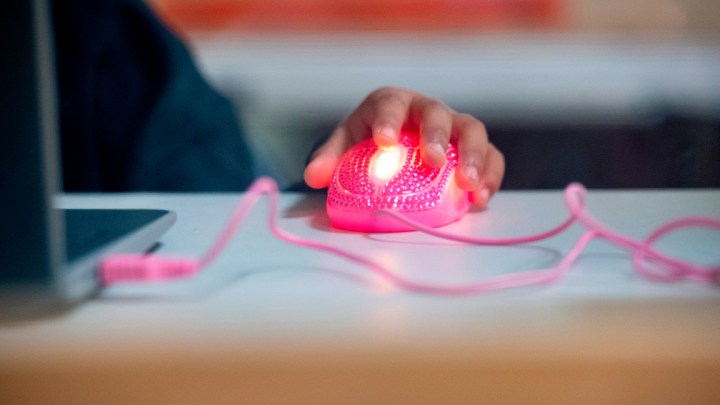
How are Black communities in the rural South dealing with digital redlining?
How are Black communities in the rural South dealing with digital redlining?

In today’s economy, broadband internet is virtually essential. It affects people’s ability to apply for jobs or work from home, pay bills, turn in schoolwork or use telehealth services. But in many communities across the rural South, residents don’t have reliable and affordable internet access.
Black households in the South suffer the most; 38% of Black residents don’t have home internet, according to a 2021 study. Some residents pay exorbitant prices for spotty broadband service or rely on community resources like local businesses and libraries for internet access.
As part of the Bipartisan Infrastructure Law, the Biden administration allocated more than $42 billion toward broadband infrastructure through the Broadband Equity, Access, and Deployment program. It’s goal is to bring affordable, high-speed internet access to millions of unserved and underserved Americans.
Aallyah Wright, the rural issues reporter for Capital B News, traveled around Alabama, Georgia and Mississippi to document the effects of digital redlining for the series “Disconnected: Rural Black America and the Digital Divide.” She spoke to Marketplace host Kai Ryssdal about how the digital divide disrupts the everyday lives of Black residents.
The following is an edited transcript of the conversation.
Kai Ryssdal: So the headline of the piece, as I said, in the introduction: “Digital Redlining and the Black Rural South.” How bad is it?
Aallyah Wright: Yeah, so I’ll start by just saying I thought about my experience when I lived in Mississippi, which is my home state. And I had issues finding an internet provider where I lived. And when I did find a provider, first of all, it took multiple attempts to find someone who serviced my area. When I did, the service was so slow that I had to basically work out of the local coffee shop that was in the downtown area of where I lived. And so given that, I wanted to see what it looked like for other places, you know, in terms of accessibility as well as affordability. And so I got a chance to travel to Alabama, Mississippi and Georgia just to see how, you know, these issues were affecting folks.
Ryssdal: Yeah, as you mentioned, there are two things: accessibility and cost. Let’s talk first of all about the cost. Internet service can be had with some difficulty, and it’s expensive as all get out.
Wright: Yeah. Many folks who, you know, live in these areas are low income, and they can’t afford to subscribe to an internet service, as well, as you know, paying the bills, prescriptions, you know, necessities. They’re stretched thin. So when it comes to choosing essentials versus internet, they just simply can’t do it. And even though some folks may, you know, have the service, usually, the service isn’t always great, and a number of folks have mentioned that their service resembles modern-day dial-up, if you will.
Ryssdal: Yeah, you know, it’s interesting. You talked about picking between essentials and the internet. And, while obviously, the internet is not food and shelter, in today’s modern economy, broadband internet is kind of an essential. This affects people’s work, their ability to go to school, all of those things that you lay out in this piece.
Wright: Yeah, very much. So you can’t do most things, you know, without the internet. Just think about, as you mentioned, wanting to do remote work. We know jobs are limited and few in these areas. So it would be great for folks to be able to take on a remote job and make more money. Or paying a bill online, submitting schoolwork, applying for government programs and assistance. And so, for folks who may not have great quality service or service at all, they have to find alternatives, whether it’s driving or walking to a local library or a hotel lobby or simply going to their neighbor’s home.
Ryssdal: When you were on your search for your own internet in Mississippi, and were having to deal with, you know, going to the library and whatever, did you just look around and say, “How the heck did this happen?”
Wright: I think at that time, I was just trying to get the internet wherever I could. But it always was in the back of my mind. I mean, even growing up, because I’m from Clarksdale, Mississippi, and even growing up living in —
Ryssdal: Which, for those who aren’t familiar, how rural is that part of Mississippi?
Wright: So that part, it’s about, what, 15,000 folks? And it’s in the heart of the Mississippi Delta, which is the poorest part of the state and also one of the poorest areas in the country. And we also are known for our blues tourism, so I should definitely put that out there. But even living with my mom, she had what they would deem as quality internet service, and she paid hundreds of dollars, maybe up to $200 for it, but the internet was still so slow. And so it was always in the back of my mind and thinking, “Why does this issue exist?” But when I finally got the chance to delve into it and spend months reporting this out, I knew I had the chance to finally figure out why.
There’s a lot happening in the world. Through it all, Marketplace is here for you.
You rely on Marketplace to break down the world’s events and tell you how it affects you in a fact-based, approachable way. We rely on your financial support to keep making that possible.
Your donation today powers the independent journalism that you rely on. For just $5/month, you can help sustain Marketplace so we can keep reporting on the things that matter to you.











